The diseases we research impact people's lives
Our researchers are dedicated to improving lives through neuroscience. Thanks to the generosity of all our donors, that we can continue our legacy of ground-breaking research.
Brazil Family Foundation
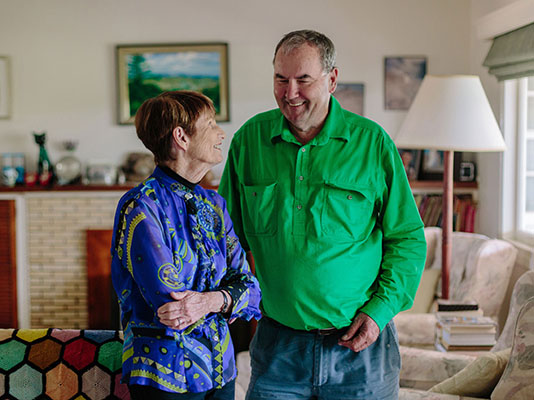
Recognising stroke and motor neurone disease (MND) had only limited treatment options and no cures prompted Lyn and Bobbie Brazil to establish the Brazil Family Program for Neurology in 2017. This enabled us to recruit world-leading researchers and support four laboratories.
Dr Adam Walker’s laboratory has defined some of the early triggers of MND to enable the best targeted approaches for therapies and identified ways to prevent the abnormal accumulation or improve the removal of a protein that causes motor neurons to die.
Dr Tara Walker is examining whether the dietary supplement selenium can prevent or decrease cognitive or motor deficits following stroke.
Dr Matilde Balbi aims to understand how stimulating the cortex in different ways reduces the loss of brain cells after a stroke and whether this mitigates behavioural deficits.
Professor Gail Robinson’s stroke research aims to improve cognitive assessment tests used to evaluate stroke survivors, in the acute phase, to predict long-term outcomes and to develop more targeted, personalised therapy strategies. Professor Robinson also aims to improve our understanding of the biological basis of MND.
The Brazil Family have also donated generously to our Alzheimer’s disease research. This gift contributed to Professor Jürgen Götz and his team’s ground-breaking therapeutic ultrasound approach to target dementia. This research has identified a range of potential applications for ultrasound, including delivering drugs into the brain. The intention is to modify disease progression and ultimately cure brain diseases.
Discovery research leads to the health outcomes of the future, but it takes time and support. Researchers need preliminary data to support their applications for grants. With government grant funding becoming harder to secure , scientists with promising research potential are being lost.
Funding of researchers who narrowly miss out on government grant funding could hold the key to major breakthroughs and, with support, could continue to explore new avenues and build the data needed to be successful in subsequent grant rounds.
The Brazil Family Foundation understands the power of “near-miss” applications and are supporting our scientists with a gift which enables them to continue collecting valuable data to improve their grant success in future funding rounds.
The whole of the QBI community pays tribute to the Brazil Family Foundation whose generosity and support enables us to continue our pathway to expanding our understanding of the brain, the underlying causes of brain disease and help develop new treatments which will benefit the community at large.
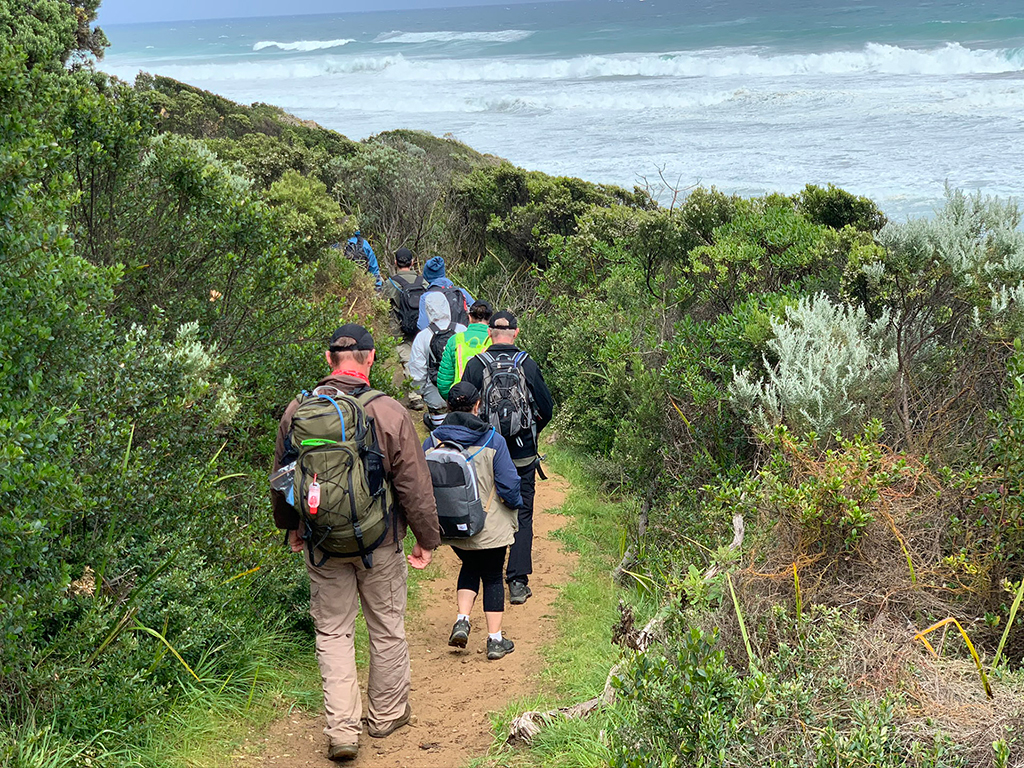
Great Ocean Walk, raised over $125 000 to support
brain research.
NFIA Trekkers do the hard yards for QBI
Through the hard work of Brian Davies, a successful businessman and immediate past-president and patron of the National Fire Industry Association (NFIA), and his wife, Liz, QBI was the joint-recipient of a donation of over $250 000 in 2019.
This incredible effort was the result of the NFIA Patron’s Walk held in October, which may sound like a scenic walk in the park but Brian, Liz and seven other NFIA members spent three days enduring driving rain and winds of close to 50 knots coming straight from Antarctica.
The idea for the walk came while the couple were completing the Three Capes Walk to raise money for the Queensland Brain Institute in 2018.
On that walk, Liz suggested to Brian that as the patron of the NFIA, he could create his own walk for charity. Mr Davies believes that corporate Australia has a big responsibility to give back, which is testament to the success of the inaugural walk. The money raised was shared between the Queensland Brain Institute and the Gallipoli Medical Research Foundation (GMRF).
The NFIA walk is the first of three walks to raise money for research at QBI and GMRF, with the aim of raising $500 000 in three years. The donation from the NFIA walk will help QBI’s research into motor neurone disease, dementia, Parkinson’s disease, stroke and QBI’s Discovery Research Endowment fund, which enables fundamental research into major health issues, including depression, anxiety, PTSD and epilepsy. QBI is extremely grateful to Brian and Liz and the NFIA team for their support.
The NFIA walk is the first of three walks to raise money for research at QBI and GMRF, with the aim of raising $500 000 in three years.
The Stafford Fox Medical Research Foundation
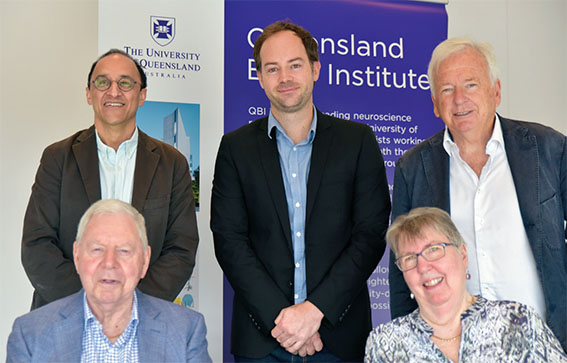
(QBI Director) and Dr Steven Zuryn and Emeritus Professor Perry Bartlett AO (back row).
In 2019, The Stafford Fox Medical Research Foundation confirmed its continued generous support of the prestigious $2.5 million philanthropically funded international fellowship to Dr Steven Zuryn at the Queensland Brain Institute to fight stroke-induced dementia, also known as vascular dementia. The Foundation also continues to support the work of Emeritus Professor Perry Bartlett’s research into prevention of dementia in ageing by improving cognition through exercise.
The Stafford Fox Medical Research Foundation was established in 2013 following the death of Moyna Fox, and named in honour of her late husband, James Stafford Fox, a former BP Australia chief executive.
Stafford and Moyna Fox started one of Australia’s wealthiest medical research foundations after many years of careful planning, resulting in a fund worth over $100 million. It was only publicly revealed in Moyna’s will when she died in 2013, many years after her husband.
James Stafford Fox was a private person, tall, physically imposing, but without a, particularly dominant personality. He rose from a position as a junior clerk at the Port Melbourne depot of the Commonwealth Oil Refineries (COR) in 1932, to become the first Australian chief executive of BP Australia Ltd in 1971.
James Stafford Fox spent three years at the helm of BP Australia, and retired in 1974 at age 60, remaining on several boards until 1985. By 1990, he was in poor health, suffering, among other things, from dementia. He entered a nursing home and died in 1994. By that time, he had already charted the course that would lead to the establishment of the foundation. Moyna lived on for more than 18 years, knowing what would happen after her death, but never revealing it publicly. Eventually, she too succumbed to dementia and died in 2013. The couple, who were so careful with their money and who clearly had no desire for fame and prominence during their lifetime, will now forever be remembered for their generosity in setting up the Stafford Fox Medical Foundation.
The Foundation’s support of QBI is crucial in enabling Emeritus Professor Bartlett and Dr Steven Zuryn to continue their work in finding solutions for the growing challenge of dementia today. This cutting- edge research is helping put Queensland and Australia at the forefront of world medical research.
What your donations fund
Your support can help us achieve a range of achievements

World leading research

Brightest scientific minds

Solutions to global health challenges
"I think it is important for people with dementia, their families and carers, to know that they are not forgotten, and that there’s a lot of work going on behind the scenes at QBI to try to unravel the tangled web that is dementia."
– Robyn Hilton (established the Peter Hilton Senior Research Fellowship in Ageing Dementia)
Hear from one of our supporters
Jeff Maclean, Chair of QBI Advisory Board
Got a story you would like to share?
Are you a donor or supporter of QBI and would like to share your story? We would love to hear from you!
Research in action
- 27 Jul 2022A/Professor Saul Villeda
School of Medicine
University of California, San Francisco - 6 May 2020Join us for an informative breakfast session highlighting MND research at the Queensland Brain Institute.
Faculty
Professor Pankaj Sah
Director & Institute DirectorQueensland Brain InstituteCentre Director of The Asia-Pacific Centre for NeuromodulationAsia-Pacific Centre for NeuromodulationResearcher profile is public:1Supervisor:Researcher biography:Professor Pankaj Sah is Director of the Queensland Brain Institute (QBI) at The University of Queensland (UQ). He is renowned for his work in understanding the neural circuitry of the amygdala, an area of the brain that plays a central role in learning and memory formation. Dysfunction of the amygdala leads to a host of anxiety-related disorders. His laboratory uses a combination of molecular tools, electrophysiology, anatomical reconstruction, calcium imaging and behavioural studies to examine the electrophysiological signatures of different brain regions and their impact on disease. Recently, his laboratory has been working with patients undergoing electrode implantation for deep brain stimulation, which is used to treat a variety of disorders such as Parkinson's disease, Tourette's syndrome and essential tremor. Professor Sah trained in medicine at The University of New South Wales and, after completing his internship, gained a PhD from the Australian National University. Following postdoctoral work at the University of California, San Francisco, and UQ, he established his own laboratory at the University of Newcastle in 1994. He then joined the John Curtin School of Medical Research at the Australian National University as a group leader in 1997. He was recruited to QBI as a founding member in 2003, and has been Director since July 2015. Professor Sah has published over 110 papers in international peer-reviewed journals. He is also the Editor-in-Chief of the Nature Partner Journal npj Science of Learning, the first journal to bring together the findings of neuroscientists, psychologists, and education researchers to understand how the brain learns.
Body: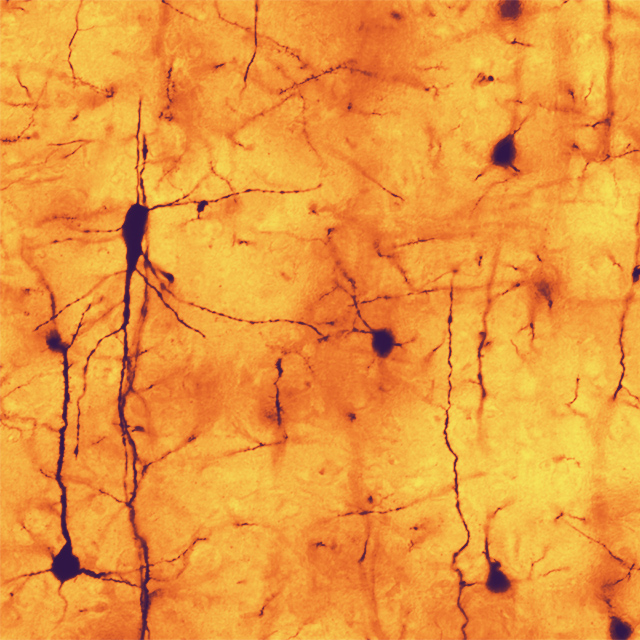 Professor Pankaj Sah: Synaptic Plasticity
Professor Pankaj Sah: Synaptic PlasticityThe Sah laboratory uses electrophysiology and molecular techniques, in conjunction with behavioural studies, to understand the neural circuitry that underpins learning and memory formation. Using animal models, the laboratory focusses on the part of the brain called the amygdala, and a Pavlovian learning paradigm called fear conditioning.
Professor Karen Thorpe
ARC Australian Laureate Fellow - Group LeaderQueensland Brain InstituteResearcher profile is public:1Supervisor:Researcher biography:Karen Thorpe is Australian Research Council, Laureate Professor and Group Leader in Child Development, Education and Care at the Queensland Brain Institute, University of Queensland. Her research is grounded in the understanding that early learning experiences shape brain development and are critical in establishing trajectories of health, social inclusion and learning across the lifespan. A particular focus of her work is early care and education environments including parenting, parent work, quality of care and education, and the early years workforce.
Karen leads a multi-disciplinary team of developmental scientists undertaking large scale longitudinal studies with embedded studies to explicate mechanisms that enable or limit children's life chances. She was Foundation Psychologist on the Avon Longitudinal Study of Parents and Children at the University of Bristol, UK; led the evaluation of the Preparing School Trial for Queensland Government; led the Queensland team of the E4Kids study of quality in Australian Early Education and Care and a recent data linkage project with Queensland Government to track participants through their school journey. In partnership with Queensland Government, Goodstart Early Learning and the Creche and Kindergarten Association she led a large population study of the Australian ECEC workforce (ARC Linkage). Her current research, as a chief investigator on the ARC Centre of Excellence for Children and Families across the life course, and through an ARC Laureate fellowship, is to examine barriers to providing high quality early learning services in developmentally vulnerable communities.
In 2013 and again in 2019 Karen was named by the Australian Financial Review as among Australia's 100 Women of Influence for the impacts of her research on educational and family policy. In 2020 she was recognised by Australian Government, Advance Global Awards for her international contribution to education. Karen chairs the Australian Early Years Reference Council for Evidence for Learning, Australia whose remit is to build a strong evidence-base in early childhood education and care with focus on translation into policy and practice. She is also director on the board of the Australian Research Council for Children and Youth and advisor to the national board of Beyond Blue – Be You.
Body: Professor Karen Thorpe: Child Development, Education and Care
Professor Karen Thorpe: Child Development, Education and CareThe Thorpe group seek to understand the effects of early life experiences on trajectories across the life course. Their focus is on the first five years of life, a formative period in human brain development in which the quality of experiences, and particularly social interactions, shape brain architecture. The group work with government and non-government agencies to inform child and family policy and practice strategies that improve children’s development and learning.
Associate Professor Susannah Tye
Principal Research Fellow - GLQueensland Brain InstituteResearcher profile is public:1Supervisor:Researcher biography:Dr. Susannah Tye joined the Queensland Brain Institute in 2017 and has established a research program within the Asia Pacific Centre for Neuromodulation (QLD, Australia). Before returning to Australia, Dr. Tye directed the Translational Neuroscience Laboratory at the Mayo Clinic (2012-2017). While there she led efforts to develop brain stimulation devices (for rodents and humans) that can quantify neural activity and neurotransmitter dynamics in the living brain. This body of work now forms the basis of the neuropsychiatric arm of the Mayo Clinic’s Deep Brain Stimulation Consortium. Her specific research expertise are in utilising voltammetric (electrochemical) recording techniques to monitor rapid, synaptic neurotransmission in the living brain.
Dr. Tye has over ten years of experience studying neuromodulation in preclinical rodent models and human patients. Her long-term goal is to bridge preclinical and clinical studies to maximise translational impact, specifically in terms of improving patient outcomes for those with severe refractory psychiatric illness. Towards this end, she maintains many international collaborations with both clinical and basic science researchers. Dr. Tye also has a longstanding interest in mentoring young scientists to help them expand their skills in preclinical and basic science research and achieve a successful research career.
Body: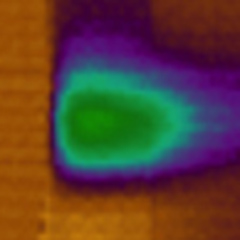 Associate Professor Susannah Tye: Functional neuromodulation and novel therapeutics
Associate Professor Susannah Tye: Functional neuromodulation and novel therapeuticsOur research is interdisciplinary, drawing on approaches and techniques from neuroscience, molecular biology, biochemistry, and neuroengineering. We are particularly interested in the potential to use key biomarkers of refractory illness to diagnose and inform treatment decisions, and the possibility that real-time feedback may be used to customise neuromodulatory treatments. Ongoing projects in the lab address both basic and translational neuroscience questions.
Professor Bruno van Swinderen
Professorial Research Fellow - GLQueensland Brain InstituteResearcher profile is public:1Supervisor:Researcher biography:Professor Bruno van Swinderen received his PhD in Evolutionary and Population Biology in 1998 from Washington University in St. Louis, Missouri. His graduate work was on general anesthesia in a Caenorhabditis elegans model, applying both quantitative genetics and molecular genetic approaches. For his postdoc at The Neurosciences Institute (NSI) in San Diego, California (1999-2003), he switched to Drosophila melanogaster to develop methods of studying perception in the fruit-fly model. He ran a lab at NSI from 2003 to late 2007.
Professor van Swinderen established a new laboratory at the Queensland Brain Institute in February 2008.
Bruno van Swinderen's group use Drosophila as a genetic model system to study mechanisms of perception in the brain and are interested in three phenomena: selective attention, sleep, and general anesthesia. Their focus is on visual perception and how it is affected by these different arousal states. Their current effort is in understanding how sleep regulates selective attention and predictive processing. Toward this goal, they use various novel visual paradigms in a Drosophila molecular genetics context. The lab is also focussed on understanding presynaptic mechamisms of general anaesthesia, with a view to uncovering new strategies to improve recovery from this common medical procedure.
Body: Professor Bruno van Swinderen: Drosophila behaviour and cognition
Professor Bruno van Swinderen: Drosophila behaviour and cognitionOur long-term vision is to understand how a brain produces subjective awareness. To achieve this long-term goal, we have focussed on understanding three brain states where awareness can be lost: general anaesthesia, sleep, and selective attention. During selective attention, we become unaware of objects outside our focus. How does that work? During sleep, the outside world is more broadly suppressed. Why is this necessary? Finally, during general anaesthesia, a bewildering array of drugs achieve the same, but deeper. By studying these three ways in which consciousness is lost, we hope to arrive at a better understanding on what is necessary for consciousness to exist – in any animal.
Professor Jana Vukovic
Professorial Research FellowQueensland Brain InstituteResearcher profile is public:1Supervisor:Researcher biography:The Vukovic laboratory investigates how brain function is sculpted and influenced by the immune system. Specifically, we examine the role of brain's main resident immune cell population (i.e. microglia), as well as various peripheral immune cells, on learning and memory in mice. We are interested in defining the contribution of immune cells to such higher cognitive tasks, including for neuroinflammatory conditions where learning and memory deficits can occur, e.g. following traumatic brain injury, cancer treatment, and ageing. We have established an array of genetic and pharmacological tools alongside robust behavioural assays to directly probe the function of these immune cells in both the healthy and diseased brain. The ultimate goal of our work is to link cellular and molecular events to altered behaviour, and to harness the brain's intrinsic regenerative potential for stimulating optimal cognitive function.
A neuroimmunologist, Dr Vukovic received her PhD in 2008 from The University of Western Australia after working on the repair of injured nerve cell connections. She joined QBI in 2009 to work in Professor Perry Bartlett's laboratory as a Postdoctoral Research Fellow, before being awarded a Queensland Government Smart Futures Fellowship to continue her research into the importance of adult neurogenesis for behaviour and how microglia influence this process in ageing. Dr Vukovic demonstrated that microglia can exert a dual and opposing influence over adult neurogenesis (the birth of new neurons) in the hippocampus under different physiological conditions, namely exercise and ageing, and that signalling through the chemokine receptor, CX3CR1, critically contributes towards this (Vukovic et al., 2012, J Neurosci). Dr Vukovic also generated novel evidence that ongoing neurogenesis in the adult hippocampus is critical for new learning but does not play a role in memory recall (Vukovic et al., 2013, J Neurosci).
Dr Vukovic was awarded an ARC Discovery Early Career Researcher Award (2015-2018) and was jointly appointed as a group leader by the UQ School of Biomedical Sciences (SBMS) and QBI in 2015. She heads the Neuroimmunology and Cognition team investigating the interactions between the brain and the immune system in health and disease.
Currently, the group is working on three main projects:
- Identification of microglia-derived molecules that support neuronal survival and stimulate neural stem/progenitor cell expansion
- Characterisation of immune cell contribution to changes in neuronal connectivity
- Immune cell responses to cancer treatment, and their effect on learning and memory
Body: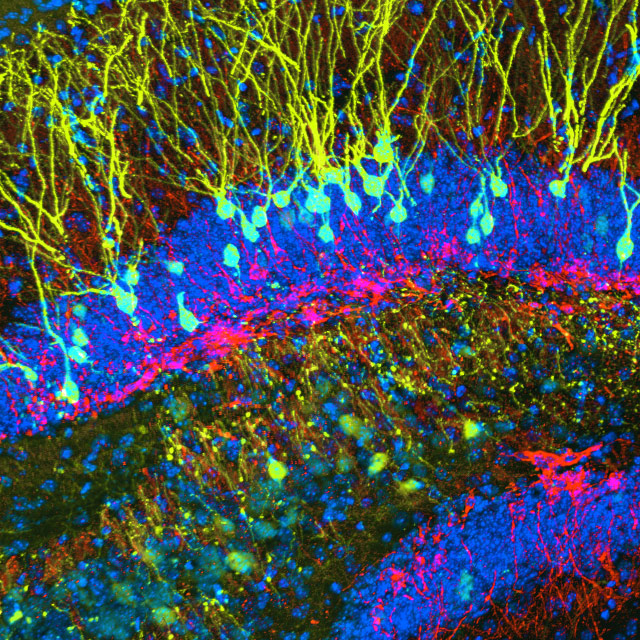 Professor Jana Vukovic: Neuroimmunology and cognition
Professor Jana Vukovic: Neuroimmunology and cognitionThe Vukovic laboratory investigates how brain function is sculpted and influenced by the immune system. Specifically, we examine the role of brain’s main resident immune cell population (i.e. microglia), as well as various peripheral immune cells, on learning and memory in mice. We are interested in defining the contribution of immune cells to such higher cognitive tasks, including for neuroinflammatory conditions where learning and memory deficits can occur, e.g. following traumatic brain injury, cancer treatment, and ageing.
Associate Professor Adam Walker
Ross Maclean Fellow - GLQueensland Brain InstituteAffiliate of Clem Jones Centre for Ageing and Dementia ResearchClem Jones Centre for Ageing Dementia ResearchResearcher profile is public:1Supervisor:Researcher biography:Dr Adam Walker received his BSc(Hons) in Biochemistry from the University of Tasmania, and PhD in Neuroscience from the Florey Institute of Neuroscience and Mental Health at the University of Melbourne, focused on understanding the molecular mechanisms of motor neuron disease (MND). He undertook a postdoctoral fellowship with Professor Virginia Lee at the Center for Neurodegenerative Disease Research, University of Pennsylvania (2011-2015), developing new transgenic TDP-43 mouse models of disease. Dr Walker was previously an NHMRC CJ Martin Overseas Biomedical Research Fellow and was awarded an NHMRC RD Wright Career Development Fellowship (2018-2022), to continue his research on neurodegenerative diseases. His research has been supported by fellowships and project grants from the Australian National Health and Medical Research Council, the Australian National Foundation for Medical Research and Innovation, Dementia Australia, Motor Neuron Disease Research Institute of Australia, MonSTaR Foundation and the Cure for MND Foundation.
Body: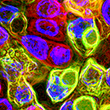 Professor Adam Walker: Neurodegeneration pathobiology
Professor Adam Walker: Neurodegeneration pathobiologyThe Walker lab uses biochemistry and imaging techniques to study neuronal cell culture and genetically modified mouse models of MND and FTD, alongside analysis of human brain and spinal cord samples, to investigate the involvement of TDP-43 in disease. Importantly, Dr Walker previously characterised new TDP-43 mice that develop both pathology and motor phenotypes reminiscent of human disease, which are a vital new tool for both investigations of disease mechanisms and pre-clinical testing of therapeutics.
Dr Tara Walker
Research Fellow & Group Leader, Senior Research FellowQueensland Brain InstituteAffiliate of Clem Jones Centre for Ageing and Dementia ResearchClem Jones Centre for Ageing Dementia ResearchResearcher profile is public:1Supervisor:Researcher biography:Dr Tara Walker is a Senior Research Associate at the Queensland Brain Institute. Dr Walker's group is investigating the mechanisms governing the lifelong production of neurons in the adult brain (adult neurogenesis). Tara studied Biotechnology as an undergraduate at the Queensland University of Technology (Brisbane, Australia), before carrying out her PhD in the field of Plant Biotechnology. In 2003 she made the transition to neuroscience, joining the Queensland Brain Institute (QBI) and the group of Professor Perry Bartlett. Here she became interested in the field of adult hippocampal neurogenesis, particularly in its activity-dependent regulation. In 2010, she joined the group of Professor Gerd Kempermann at the Center for Regenerative Therapies in Dresden, Germany, where she was awarded a Marie Curie International Incoming Fellowship in 2011. In July 2018 she returned to QBI to take up a position in the newly developed Centre for Restorative Neurosciences as a Senior Research Associate, where she will apply her knowledge of neural stem cell biology to stroke research.
Body:Research interest
We are interested in understanding the fundamental mechanisms governing the lifelong production of neurons in the adult brain. Adult neurogenesis, as this process is termed, decreases with age and this age-related decline in neurogenesis results in an associated decline in learning processes that are controlled by the hippocampus.
In previous work, together with Professor Perry Bartlett, we provided the first evidence of a true, but normally latent, hippocampal stem cell population and identified a mechanism through which the production of new neurons could be stimulated to replace or repair damaged cells in neurodegenerative diseases. More recently our focus has been on the systemic regulation of adult neurogenesis. We use the physical exercise model of increased neurogenesis to investigate cross-talk between the brain and the peripheral immune system, and in this context have investigated the interaction between T cells, mast cells and platelets and the neural stem cell niche.
The control of cell death provides a key mechanism in the regulation of adult hippocampal neurogenesis. We have demonstrated that ferroptosis, a recently identified, caspase-3-independent mode of programmed cell death, is a fundamental mechanism underlying the regulation of adult hippocampal neurogenesis. This form of cell death is mediated by the dietary trace element selenium. We have shown that selenium supplementation results in increased neural progenitor cell survival and neuronal-lineage differentiation in the hippocampus of young adult and aged mice. Ferroptotic cell death has been linked to the cell death that occurs in a number of neurodegenerative diseases and stroke. A key aspect of our future research program will be to investigate whether blocking ferroptotic cell death via dietary or environmental interventions can rescue the behavioural and cognitive decline observed in an animal model of stroke.
Dr Clarissa Whitmire
Senior Research FellowQueensland Brain InstituteResearcher profile is public:1Supervisor:Researcher biography:Dr. Whitmire is a group leader at the Queensland Brain Institute (QBI) and a senior lecturer in Electrical Engineering and Computer Science (EECS) at The University of Queensland (UQ). She is a leading expert in understanding how sensory information is represented along the neuraxis from the neurons in the skin that sense external stimuli to the central representation in the thalamocortical circuit. She operates at the interface of neuroscience and engineering to generate novel insights into information representation in the brain. Her laboratory uses a combination of tools to record from populations of neurons, manipulate the activity of those neurons, and model the underlying neural circuitry. Dr. Whitmire trained as a Biomedical Engineer at North Carolina State University (B. S.) and Georgia Institute of Technology/Emory Universty (Ph.D.). Following postdoctoral work at the Max Delbrück Center for Molecular Medicine, she established her own laboratory at The University of Queensland in 2023.
Body: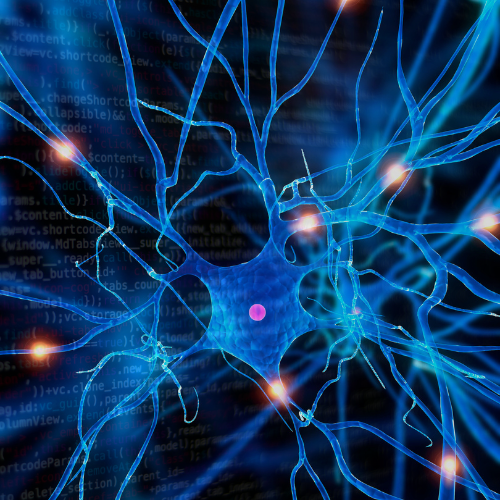 Dr Clarissa Whitmire: Neural encoding of sensory information
Dr Clarissa Whitmire: Neural encoding of sensory informationThe Whitmire lab is largely driven by the concept that perception is a construct. The internal representation of the outside world is built on the ‘neural code’. While we often model the neural code as a linear mapping from stimulus to spikes, it is actually extremely complicated and nonlinear even very early in the sensory pathway. Using a combination of experimental paradigms and computational models, we investigate how somatosensory information is encoded at each stage of the neuraxis from the skin to the cortex with a particular focus on the dynamic role of the thalamus./p>
Associate Professor Steven Zuryn
Principal Research Fellow, ARC FundedQueensland Brain InstituteAffiliate of Clem Jones Centre for Ageing and Dementia ResearchClem Jones Centre for Ageing Dementia ResearchResearcher profile is public:1Supervisor:Researcher biography:Dr Steven Zuryn is a molecular geneticist within the Queensland Brain Institute, The University of Queensland. After training as a PhD in genetics, he undertook postdoctoral reseach at the Institut Génétique Biologie Moléculaire Cellulaire (IGBMC) in Strasbourg, France. He now leads an international and diverse team of postdoctoral, PhD, Honours, and undergraduate investigators studying epigenetics and mitochondrial biology. His laboratory's work focuses on the role and impact of mitochondrial dysfunction in neurodegenerative diseases and is particularly fascinated with mutations that accumulate within the mitochondria's own genome during ageing. His research has been published in the high profile journals Science, Nature Cell Biology, and Nature Communications and has appeared in multiple mainstream media outlets. For his research, he has received multiple international prizes and fellowships, been awarded grants from the NHMRC and ARC as primary chief investigator and is generously supported as a fellow of the Stafford Fox Research Foundation. Steven is passionate about communicating the critical importance of fundamental scientific research as a long-term human endeavour.
Follow the Zuryn lab on Twitter: @zurynlab
Visit the Zuryn lab website.
Body: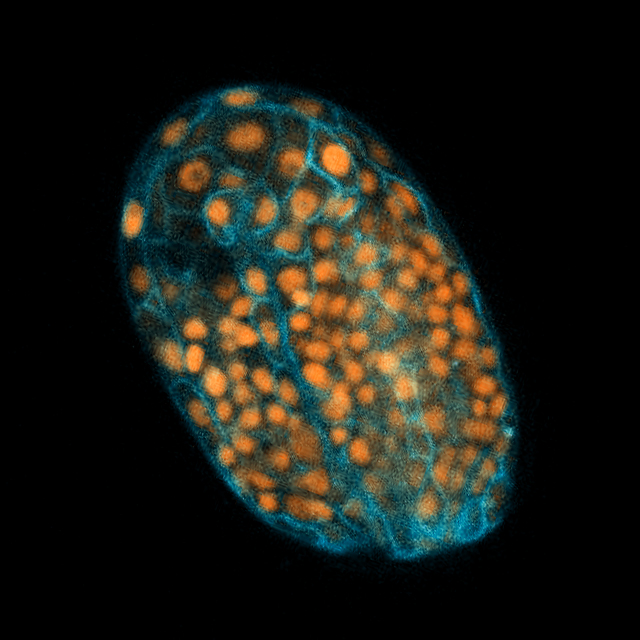 Dr Steven Zuryn: Epigenetics and Mitochondrial Biology Lab
Dr Steven Zuryn: Epigenetics and Mitochondrial Biology LabThe Zuryn lab uses cutting-edge molecular techniques in the highly successful genetic model organism C. elegans as well as human cell culture to understand the fundamental mechanisms that promote disease progression caused by mitochondrial dysfunction. Mitochondria harbour their own genome (mtDNA), which is prone to accumulating mutations as we age leading to dysfunction that may contribute to the progressive nature of neurodegenerative diseases.

